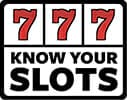When looking at the volatility of slot machines, it helps to look at some of the things that are there to entice you. One important example is the enticement of large progressives. The large progressives means someone’s going to win big… but many won’t.
As talked about in a recent piece about slot payback and the impact of these progressives, a game’s volatility can be heavily impacted by large progressives that are hard to hit. Conversely, a game may be less volatile when you have a lot of smaller progressive payouts (think games like the Quick Hit series, which many times pay out much of their contributions quickly).
It’s also important to realize that it’s not just the speed at which progressives are incrementing. While some games may increment faster than others, meaning more money is being fed in, the frequency with which they hit and the starting amount will have impacts on a progressive’s weight on volatility as well.
So, if you see them paying out often, starting lower and not incrementing all that quickly, that minimizes how much weight is being placed into them. Fast increments, paid out infrequently and starting out larger would be sapping more of the pays.
The reason this impacts the volatility of slot machines is, as noted in that earlier piece, those progressives are part of the slot’s overall payout. If they pay often and smaller amounts, like other aspects of slot machines, that can smooth out volatility by not having as many big swings.
By comparison, if you have one person winning thousands of dollars on a machine, that means other players have contributed in with no payout, swinging the other direction. A progressive or set of jackpots and progressives can easily cover 2-4 percent or more of a slot machine’s overall payback, and so it can be meaningful to the game’s payout structure.








